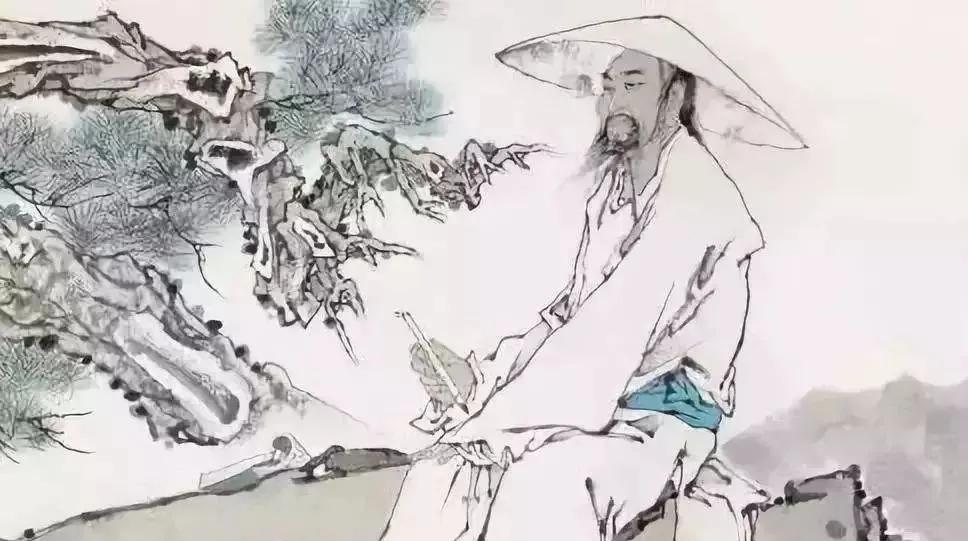Chinese old rule, the father is not standing in the son, which means that as long as the father is still there, the son, no matter how old, does not have to set up his own portal; and before the father dies, he is also obliged to leave some family property for the son. Using this rule to measure Su Rui's family, you will find that Su Ru's father Su Xun has not fulfilled his obligations.

Su Rui was born in the second year (1039) of the Song Renzong Bao, and from this year until Jiayou Entered Beijing in the first year of Jiayou (1056), Su Ru lived in the old mansion of his hometown in Meishan for eighteen years. When he and Su Shi passed the examination, his father Su Xun also served as an official for more than ten years, but he could not buy a house in the capital, and let the brothers borrow the office. Later, Su Rui, Su Shi's lover and children also came to the capital, plus the nanny of the maid, a family of dozens of old and young, the office could not live, Su Xun went to rent a mansion, dozens of mouths crowded together. In the fifth year of Jiayou, Su Xun took Su Rui to move to Qixian County, Henan, which was a rented house; in the sixth year of Jiayou, Su Xun took Su Rui back to Beijing to live idly, or rented a house; until the third year of Zhiping (1066), Su Xun died of illness, except for the old mansion in Meishan, he did not leave a property or a piece of land for his children and grandchildren. Su Xun did not mention the house in his last words, and I guess he should have some guilt and regret in his heart.
After his father's death, Su Rui kept filial piety for three years, and then returned to the capital to become an official, already thirty-one years old, and it was time to set up his own portal. However, Su Rui's luck did not seem to be good, In the first year of Xi Ning (1068), the unit was divided, and he was at home to guard filial piety and did not catch up; Xi Ning gave the house in the third year, and he went to Huaiyang, Henan to grasp education, but still did not catch up. Seeing his friend Li Zundu buying land to build a villa in Luoyang, and watching his friend Wang Gong expand his residence in Yangzhou, Su Rui felt sad, and he sighed in a poem to his friend: "Hate the field, accompany the old Penglai." "Two acres of land is two hundred acres of land."
In the tenth year of Xining, Su Rui went to Xuzhou and rented a house; in the third year of Yuanfeng (1080), Su Rui went to Gao'an, Jiangxi, to borrow the ministerial palace; in the eighth year of Yuanfeng, he went to Jixi, Anhui, as the county magistrate, and lived in the county; in the fourth year of Yuanyou (1089), he went to Hangzhou, Zhejiang, to be the mayor, and lived in fuya; in the first year of Shaosheng (1094), he was sent to Ruzhou, Henan, and rented a private house in Xuchang; in July of the same year, he was sent to Nanjing, Jiangsu, or rented a house.
When Su Rui was sent to Nanjing, Wang Anshi was also in Nanjing, and people had already bought land and bought houses, "thinking that the plan for the end of the old", Su Ru saw it, and could not help but sigh again - at this time, Su Ru was already fifty-six years old, and there was a way that life was seventy years old, not far from the soil, even if it was not for their own consideration, they should buy a house for their children and grandchildren. Therefore, in the third year of Yuan Fu, after Su Rui returned to Xuchang, Henan to settle down, he hurriedly took out the salary he had saved for most of his life, sold a batch of books, and spent several years to buy the "Bian Family House", "East Neighbor Garden" and "South Garden Bamboo", and then rebuilt and expanded, and set up a large courtyard with more than 100 rooms, settling the whole family and the whole family.
When he returned to Xuchang, Su Rui was nearly seventy years old, his sons were all adults, and the eldest son had also become an official, so it was time for him to set up his own portal. But as long as Su Rui is still there, they have the obligation to buy them a house; as long as Su Ru does not buy them a house, they have reason to protest. In the "Luancheng Houji", Su Rui has a poem: "I did not have a house when I was old, and the sons thought it was a word." This "thought" is probably not just a suggestion, but also a chattering complaint.